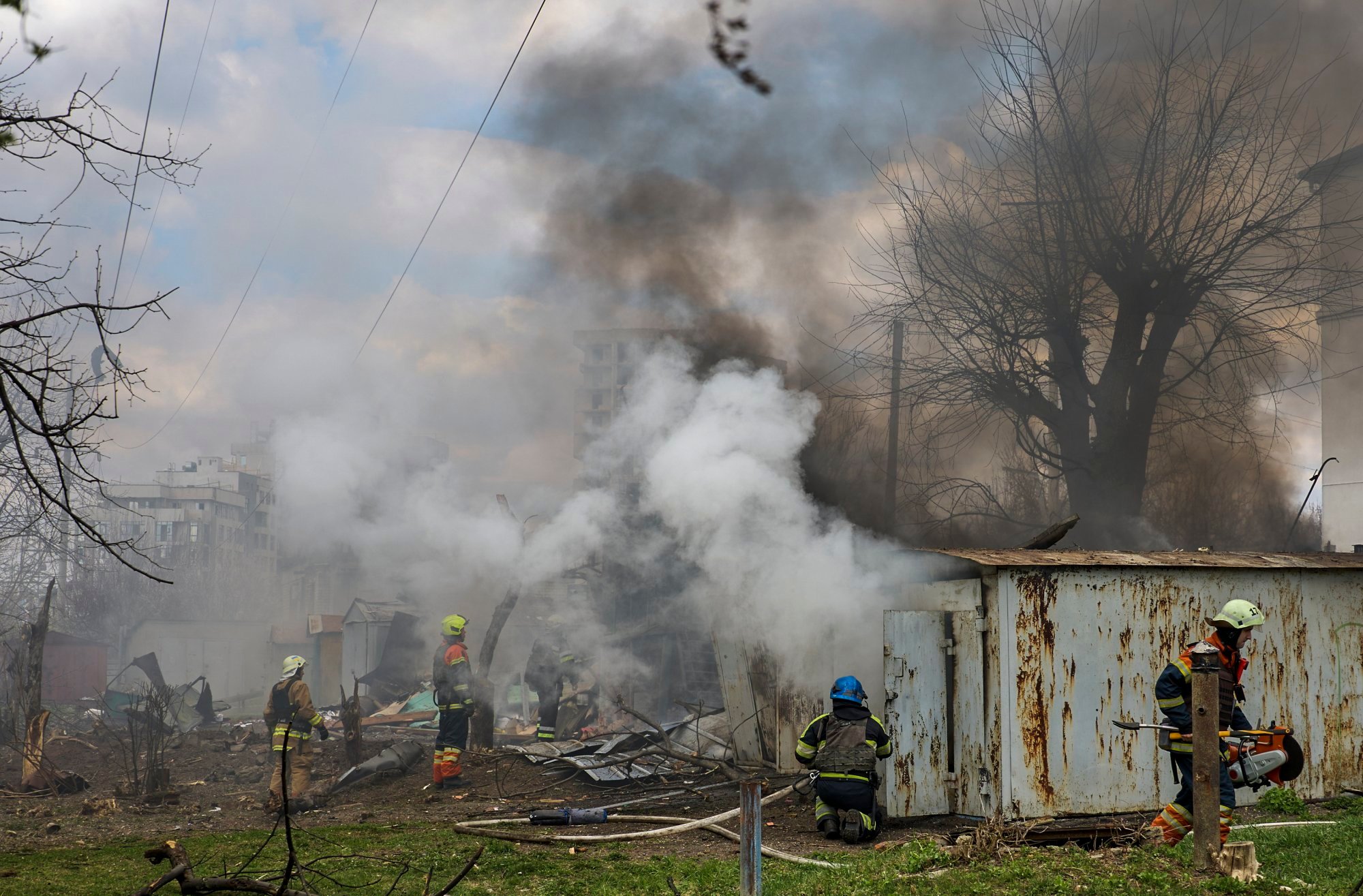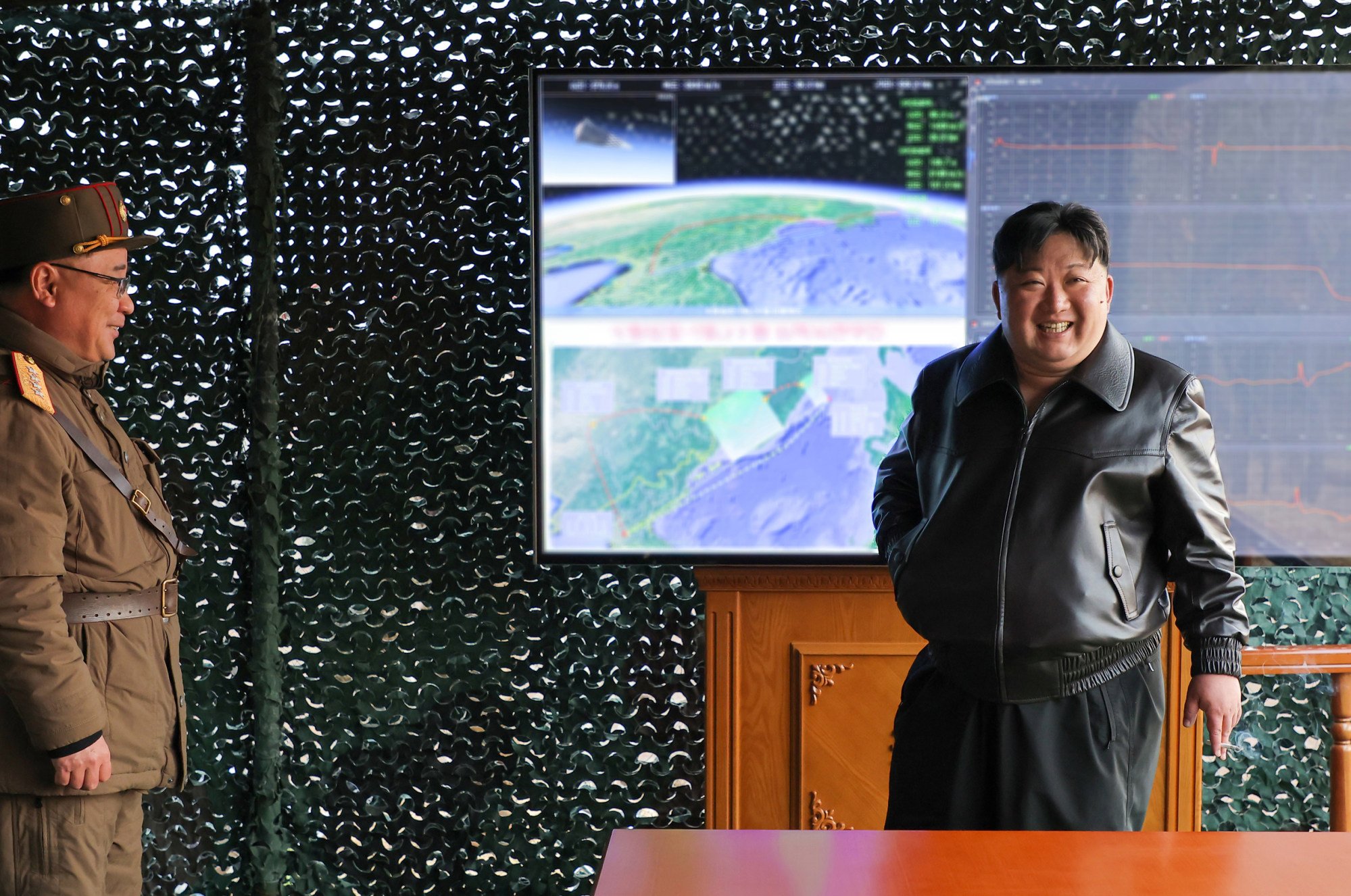“I do not think these numbers come as any great surprise,” said Sumie Kawakami, a lecturer at Yamanashi Gakuin University southwest of Tokyo. “North Korea has been firing a lot of missiles recently, and I find it interesting that [national broadcaster] NHK used to refer to these launches as of ‘projectiles’, but now they are simply calling them missiles.”
“There has been a realisation that North Korea is being more provocative and that these are missiles that can cause a lot of damage,” she added.
Kawakami said it was “inevitable” that there would be greater public concern surrounding Russia since the conflict in Ukraine had stunned the Japanese people and news about the ongoing fighting in Eastern Europe was unavoidable.
“The figures for China also reflect the alarm of ordinary people, although I am a little surprised it has gone as high as 92 per cent,” she said.

“China has for many years been aggressive towards Japan and other countries in the region, but I think what has happened in Ukraine has shown people here what could happen if China attacked Taiwan,” Kawakami said. “They worry that Japan would get drawn into fighting, and what we are seeing on television in Ukraine could happen here as well.”
Ken Kato, a businessman from Tokyo and paid-up member of the Liberal Democratic Party, said he believed it was a “positive” that more people were expressing concern about the security challenges that the nation faces.
“People have not been taking these threats seriously for a long time, and they have just become worse,” he said. “It is a positive thing that people are waking up to just how dangerous this region is.”
Kato described North Korea as the “biggest threat”, he said it was a “dictatorship where Kim [Jong-un] could wake up one morning and decide that he wanted to launch missiles with nuclear warheads at Japan and his generals would do as they were told. That, to me, is very dangerous”.
Why Asia largely backs Japan’s defence boost despite its ‘history of aggression’
Why Asia largely backs Japan’s defence boost despite its ‘history of aggression’
“I am very much in favour of greater defence spending because our present budget is not at the 2 per cent of gross domestic product level that is becoming the international norm, and we definitely need to be at that level,” Kato said.
Kawakami admitted being torn on the issue, describing herself as “an old-school pacifist who supports the constitution on the issue of defence” – but said she was being swayed by the realities facing the nation.

“I feel that Japan needs to do more … Japan should be able to play a greater role internationally, and I do not believe there is enough discussion taking place at the moment about the challenges that we face,” she said.
“The government is busy dealing with its own internal crises, so there is no active discussion taking place about the security challenges that are going on around us.”
“We need to start asking questions now about what happens if a more isolationist US administration opts to play a lesser role in the region, what happens if the US nuclear umbrella is gone, and lots of other questions,” she said.
“Right now, no one is talking about those issues, and we really need to start.”

